New Moon: The esoteric & the occult (Part I)
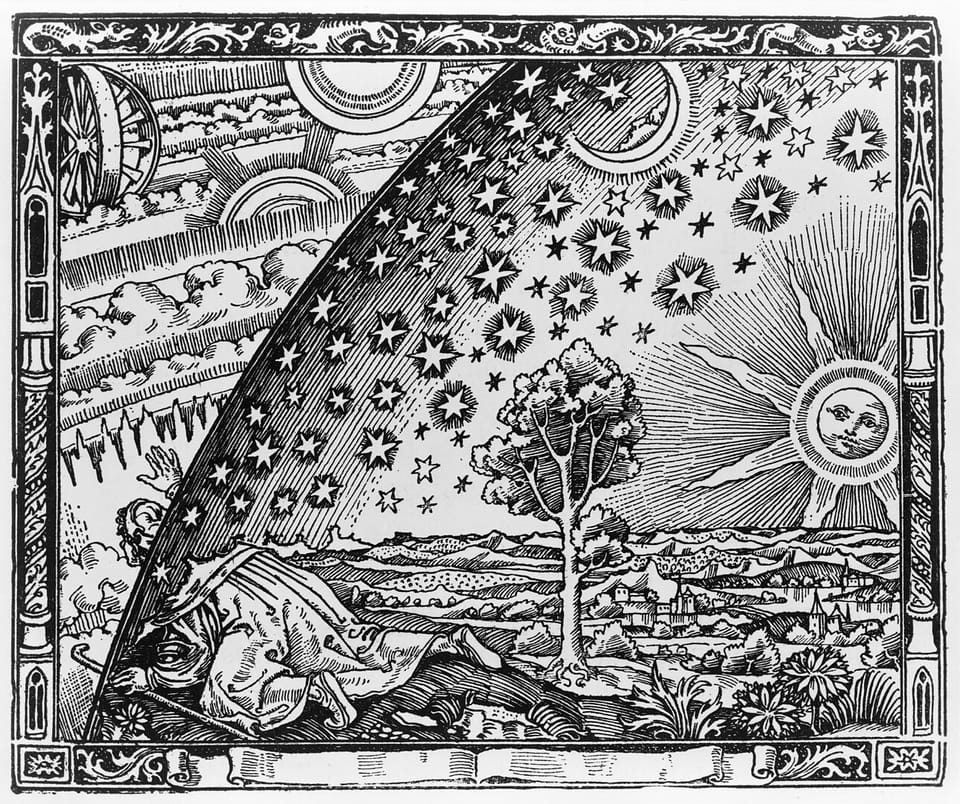
It's Friday. Hello.
I'm about to be on a weekend trip that will prevent me from making this post as long as I would really like, and since I've planned a somewhat analytical exploration, I've decided to split things into two parts. Overall, the matter in question is the pan-Mediterranean esoteric tradition, otherwise known as the Western esoteric or mystery tradition. Today I will begin with some necessary semantic pedantry around why I lean on saying pan-Mediterranean in this instance, as well as defining some other terms. In a later post, I will establish more of what I personally understand and believe about the tradition, as well as what it has to do with not only my ritual practice but also just about any modern ritual practice conducted either by Euro-descended peoples or by other peoples (such as practitioners of Afro-diasporic religions) whose indigenous practices have syncretized with Euro-colonial influences.
For the past year and a half I have been trying to more intentionally ground myself in the real history and content of esoteric knowledge, much in the same way that I previously undertook some focused study of animism around the time I was starting this newsletter, which I have since refined to the point of confidently preferring the term animism to paganism because of how difficult paganism is to appropriately contextualize. However, my journey through animist theory had the advantage of requiring very little primary source reading because animism itself is less a collection of discrete ideas and more a mode of behavior, a guideline for how to relate (and even the very choice to relate) to beings beyond ourselves; it belongs originally to oral cultures, not written ones. Where esotericism is concerned, there is still no singular belief system to memorize, but it is a vast and literal library of ancient and recent documentation in addition to the ancient and recent secondary source analysis thereof. There is so much to read in order to even know what to talk about when you talk about it.
So why have I been setting myself down that path? Because I and millions of living ritualists worldwide have already been practicing our own outgrowths of pan-Mediterranean esotericism whether we acknowledge it or not. And ever since I vowed myself to witchcraft eight years ago, I've recognized that this esotericism underpins at least 50% of my rites' grammar and vocabulary — but it's only recently that I've decided to strengthen those foundations in a deliberate way instead of just experimenting with arcana that, despite understanding enough to proceed with humility, I have not understood well enough to account for all of the genuine power (and risks) therein.
Here then is the first part of my own analysis — of the tip of the iceberg I've examined to date.
Pan-Mediterranean
I believe that Ronald Hutton himself still simply refers to the Western esoteric tradition, not saying pan-Mediterranean, but it was through reading Hutton's The Triumph of the Moon that I recognized exactly how important this esoteric tradition actually is. Yes, I had long known that scattered tokens like Babylonian astrology, Hermetic writings (and other texts preserved during the Islamic Golden Age), alchemy, Elizabethan occultists, Freemasonry, the Theosophical Society, and 19th-20th century ceremonial magic all had something to do with each other, and all had fed in to what became modern neopaganism like Wicca or other movements like satanism and chaos magic. And yes, I also knew (as linked in today's prologue) that said neopaganism owed a lot more to those antecedents than to any direct throughline from pre-Christian indigenous European animism, as such a throughline has been devastatingly erased or masked. It took The Triumph of the Moon, though, for me to grasp the knowledge throughline that has persisted on the esoteric side of things — to start observing its astonishing scope and depth.
That is to say, pan-Mediterranean esotericism is nakedly a surviving pre-Christian knowledge system dating back at least 2,000 years and probably a lot longer depending on what is counted as belonging to it. Due to its own syncretic and adaptive nature, it has also accepted Christian influence; but my personal impression is that areas where it really overlaps with Christianity have more to do with the Platonist Greek philosophy that played a role in both traditions during the first few centuries CE, and esotericism can manifest equally Christian-neutral, pro-Christian, or anti-Christian tendencies. Very importantly, one must note that referring to esotericism and an -ism or a knowledge system should not imply that it has a unified ideology; esotericism is a constructed, modern academic grouping of interrelated yet distinct things. Nonetheless, the interrelatedness is key. Movements have sprung out of movements, inspirations arising out of continuous discourse with the esoterica of the past. The discourse itself is the throughline and the most crucial thing to have been preserved.
Further down I will get into some other terminology and then the history of esotericism as I see it; but let me first be clear about why I say this tradition is pan-Mediterranean. Namely, for centuries if not millennia the tradition arose and evolved and fermented through cultural exchange around several coastlines on the Mediterranean Sea. If we're conservative with when we want to say it started, going with a 2,000 year limit, then we're at least looking at Roman-occupied Egypt, with concepts that were then distributed and enhanced among peoples of western Asia (the "Middle East"), southern Europe, and to some extent northern Africa, spreading further inland and taking on new forms. In the context of Europe itself, the tradition persisted underneath and alongside Christian religious paradigms, which created the occult iterations that Euro-descended people and those they've (we've) colonized can perhaps most readily recognize today; but the tradition also held its own subterranean and parallel relationships within Islamic cultures.
Given the origin not actually on the European continent and the overall multicontinental, multicultural distribution, I think it's also much better to avoid saying this is a "Western" tradition when I already do not like the word Western. It feels distinctly inept here. Some scholars do enjoy contrasting this esoteric tradition with a perceived Eastern one, much as people contrast Western and Eastern philosophy; but as pagan Egypt and the later Islamic world are only conditionally afforded a Western identity and are more frequently orientalized, there may be some political impact to rejecting assumptions that just because Europeans partly developed this esoteric framework it must belong to a "Western" oppositional pole. And indeed, given how 19th century occultists freely appropriated east and south Asian spirituality and created the exoticized, filtered lens through which the New Age movement still views it today, I'd say it's obvious the tendency of pan-Mediterranean esotericism is still toward (imperfect, colonially modulated) cultural exchange, not toward pro-"Western" isolationism — with the very specific and arch-racist exception of Nazi occultism, which is luckily not an important foundational pillar, just an ugly outgrowth of actual foundational pillars' weaker elements.
In any case, pan-Mediterranean it is. Therefore...
Other definitions
When talking about things that can generally be considered within the scope of the pan-Mediterranean esoteric tradition, a number of terms like esotericism, occultism, and ceremonial magic tend to get used in misleadingly interchangeable ways. In the past I have often been quite guilty of this and so I don't fault anyone else for doing the same. Sometimes any of those words can be convenient shorthand for what some might call a certain "vibe" of ritual practice.[1] But going forward and especially for purposes of this post, I think some clarity is in order.
The esoteric: From ancient Greek for "belonging to an inner circle," this is the aforementioned broad heading of specialized knowledge, which concerns itself with mysteries of metaphysics and magic, particularly in contrast with mainstream hegemonic religion or secularism (whether or not the knowledge conflicts with it outright).
The occult: From Latin for "hidden, secret," this conveys something very similar to the esoteric but I would like to suggest the specific angle that occult knowledge and practices concern things that cannot easily be understood through the senses alone, for which mental/psychic discipline is required. The occult also lays emphasis on initiatory aspects to how someone is introduced. The occult does not proselytize; it must be sought out and people must prove they can be trusted with it. Lastly, I speak of occultism as a post-industrial movement within the esoteric.
Alchemy: This is the esoteric subtradition that historically concerned itself with natural philosophy and formed the prototype for scientific chemistry and medicine. I have already written a number of posts that touch on alchemy in certain ways.
Ceremonial magic: This is the esoteric subtradition that historically and presently has concerned itself with choreographed, scripted activities to accomplish magical aims. It typically involves tools, special language, and some focus on spellcasting, personal transformation, mediumship, divination, etc. I am also of the view that ceremonial magic can be contrasted with folk magic — with that contrast sometimes being described as "high" vs. "low" magic, but as both forms are valuable in different ways I prefer to say that ceremonial magic is formalized, literary, conceptual, transcendental, and frequently quite hierarchical[2], while folk magic is informal, oral, material, practical, and frequently decentralized insofar as leaders may emerge but their function is to serve communities rather than have communes of followers serving them.
Black magic & white magic: In my opinion these terms are completely deprecated to the point of not meriting further attention. While slightly predating modern racism, the terms have since been subtly (and sometimes unsubtly) racialized in very unpleasant ways, and their original context was still Reformation-era Christian femicide and persecution of traditional knowledge keepers.
Left Hand Path & Right Hand Path: This is terminology invented by Helena Blavatsky in the 19th century. Because I am not comfortable with Blavatsky herself or the fact that she appropriated these concepts from Hinduism, I am also not totally comfortable with these terms, but I think they better communicate what "black magic vs. white magic" sometimes attempts to convey: magic that goes against the social order vs. magic that aligns with it. I do believe it's important to break down this binary, but I sometimes use it in the right conditions. Nevertheless I prefer to think more about the dichotomy between the ecstatic and the fertile, or between destruction and generation, either of which might sometimes map on to Left Hand vs. Right Hand, but not at all perfectly.
Satanism: By this I will always continue to mean the intentional and usually reverential incorporation of Satan or a broadly satanic deity figure within esoteric and/or occult practice, wherein he (or potentially she, or they) is likely a supreme entity. This is a sidebar from the other definitions but I mention it to a) distinguish satanism from overall esoteric demonology wherein infernal entities might be summoned and commanded rather than worshiped; b) establish satanism as a clearer (and reclamatory) iteration of what people frequently mean by "black magic," without taking any particular stance on baneful magic; and c) situate my type of esoteric cosmology and ceremonial magic, which I call satanic witchcraft, in the same realm as other practitioners who call themselves satanists[3]. There are also coexisting animist/folk magic traditions that feature Satan as either a purely negative figure to avoid or a nuanced trickster-like being to occasionally and cautiously collaborate with, but while I also align myself with the latter mode I would say that's less satanism and more a syncretic polytheistic framework.
The semantic pedantry is now more or less accomplished for this week. In a later New Moon post, I will come back to this with a short history of pan-Mediterranean esotericism at large, and I'll talk much more about how this esotericism ultimately features in my rites.
[1] Is this the first time I've said vibe here? I have complicated albeit extraordinarily tangential feelings about this.
[2] From which many of the abuses in ceremonial magical orders derive.
[3] Even if I often do not support their organizations.
Thank you for reading, and I hope you have an excellent weekend. Next week I will be reviewing the handcraft of ropemaking as it pertains to kink. After that, there will be a Virgo-related post in my ongoing zodiac series, albeit for paid supporters only.
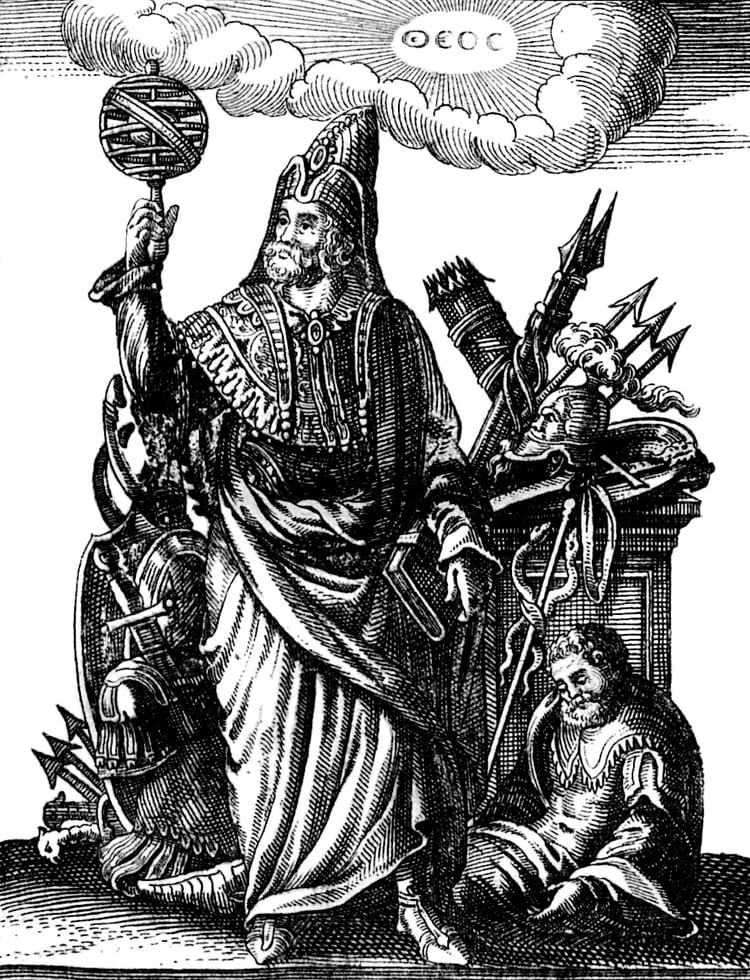

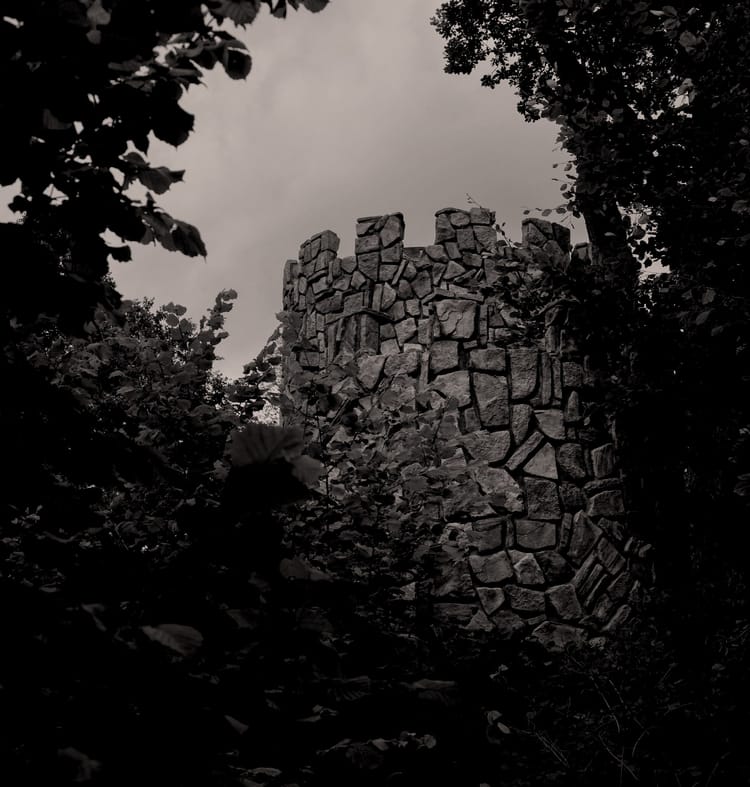
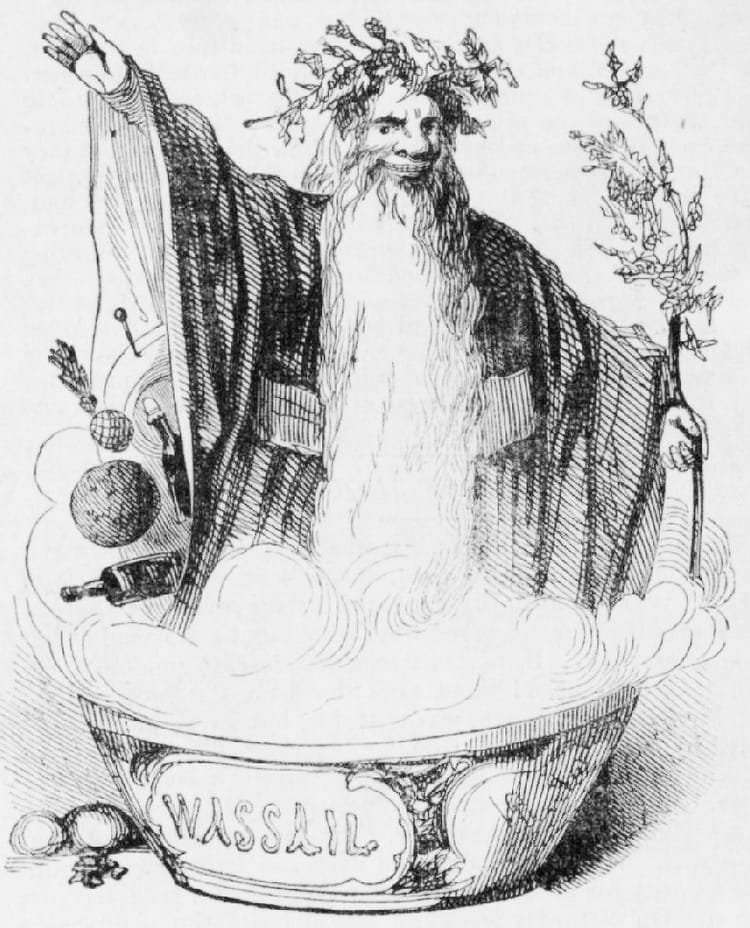
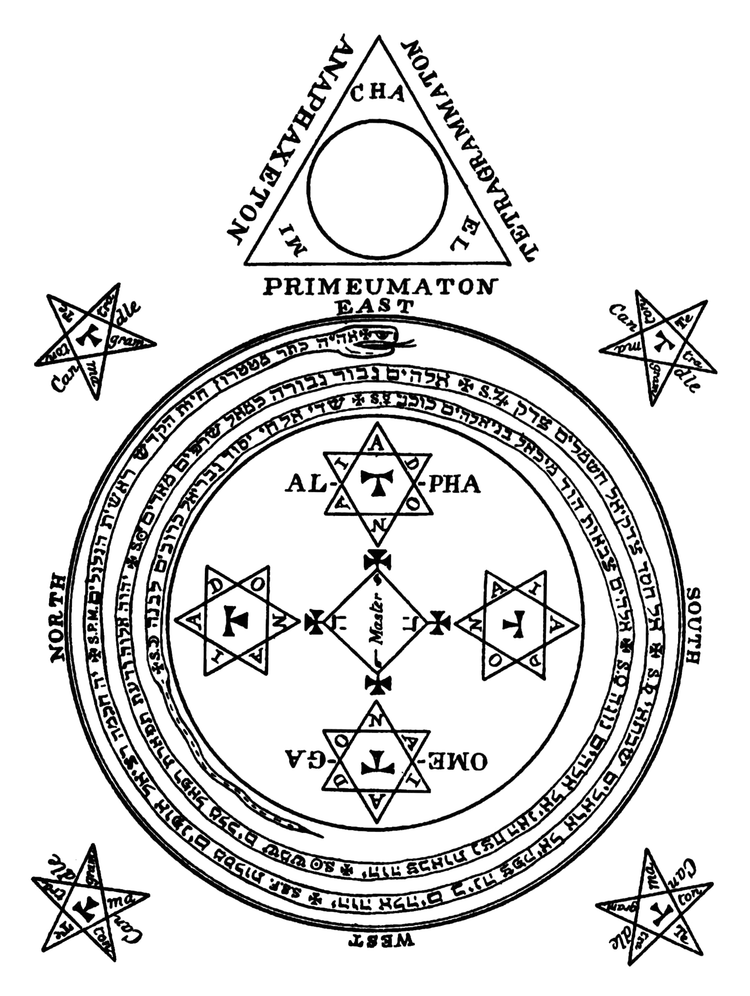
Member discussion